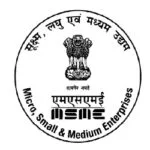EPR (Extended Producer Responsibility) registration for waste tires is an important step towards the protection of the environment and waste management in India. The EPR registration for waste tires guarantees that waste tires are managed sustainably and in an in an eco-friendly.
The primary goal of the EPR Registration Process for Waste Tyres is to limit the number of discarded tires in the environment. This can provide several benefits to manufacturers, importers, brand owners, and tire waste processors, including pollution prevention.
In the case of EPR registration for tire waste, tire manufacturers or importers should accept responsibility for handling and recycling the trash produced by their goods. This includes establishing collecting points, partnering with recycling facilities, and promising proper disposal of end-of-life tires. The process requires getting an EPR certificate for tire waste using the CPCB’s centralized website.
EPR registration is required for all tire producers, importers, and brand owners in India, and it must be done with the Central Pollution Control Board.
Connect to an Expert
Choose a desirable name for your
Submission & verification of documents
Registration completed
The registration process for waste tires requires the following documents:
• A copy of the Memorandum and Articles of Association.
• PAN card of the company.
•GST registration certificate of the company.
• Address proof of the company, such as a rent or ownership agreement.
• A copy of the State Pollution Control Board's license for storing and transferring waste tires.
• Authorization letter from the company for an authorized representative to register for EPR and communicate with CPCB.
• Information about tire manufacturers, importers, and brand owners.
Consult an expert at ECS India for hassle-free company registration services, ensuring compliance and smooth establishment of your business.
The registration process for waste tires requires the following aspects:
1. All tire producers, importers, and brand owners in India must complete the registration process.catio map
2. Registration must be completed within 6 months after the CPCB’s notification of the EPR guidelines.
3. Tyre manufacturers, importers, and brand owners must submit a bank guarantee of ₹ 2 lakh to guarantee compliance with EPR responsibilities.
4. Tyre manufacturers, importers, and brand owners must submit CPCB reports on waste tire collection, dismantling, and recycling every half-year.
5. Tyre producers, importers, and brand owners must guarantee their approved representatives have the necessary authorization from the State Pollution Control Board (SPCB) to collect, store, and transport waste tires.
The registration process for waste tires is as follows:
Step 1: Submit an application form to get access to the site and login credentials.
step 2 : Use the provided login credentials to access the portal
step 3 : Fill out the online registration form with applicant information, activity data, and a planned EPR plan
step 4: Attach any required document, including proof of ownership, EPR plan details, and other important information.
step 5: Submit the completed online application form and needed documentation within 30 days.
step 6: The CPCB will assess the application and provide a registration number within 15 days.
step 7: Authorized people must follow EPR standards and submit regular waste tire management reports to the CPCB.
step 8: If granted, an EPR authorization certificate will be issued for 2 years.
• EPR-registered manufacturers are protected from legal fines due to CPCB registration.
• EPR registration grants access to waste tire-related rules, policies, and updates.
• It allows for collaboration with authorized recyclers and pickup centres.
• EPR registration increases a company’s brand reputation by proving its commitment to ecologically friendly practices.
• EPR registration encourages proper waste tire disposal and recycling for environmental sustainability.
• It also raises awareness and facilitates knowledge sharing on proper waste tire management.
XYZ is the fastest-growing and most comprehensive platform for environmental compliance. We have years of experience and thousands of delighted customers. We have great proficiency in EPR compliance. If you require any assistance, such as creating documents, meeting a requirement, or obtaining information about any type of compliance, please contact us. The best aspect of our service is that we can create customized plans to meet your specific needs at a lower cost. . Our experts are just a call away, and they will help you with all related procedures and compliances, so you don’t need to go anywhere else.
ECS India specializes in providing LLP registration services across India. Our expert team ensures a seamless registration process, helping you establish your business efficiently. Contact us for more details and take the first step towards securing the benefits of a Limited Liability Partnership.








Service Points

Workers

Happy Clients

Project Complete




Our expert team of professionals is ready to guide you through the entire process, ensuring a hassle-free and smooth registration. Our goal is to make it as easy and stress-free as possible.
An LLP is a business structure that combines the benefits of a partnership and a company. It offers limited liability to its partners, meaning their personal assets are protected from business debts and liabilities.
The key advantages include limited liability protection for partners, flexibility in management, ease of ownership transfer, fewer compliance requirements compared to a private limited company, and no requirement for minimum capital contribution.
An LLP requires a minimum of two partners to be formed. There is no upper limit on the maximum number of partners an LLP can have.
The process includes obtaining a Digital Signature Certificate (DSC), Director Identification Number (DIN), name approval, filing the incorporation form, and drafting the LLP agreement. ECS India provides comprehensive services to facilitate this process.
Yes, an LLP can be converted into a private limited company by following the procedures laid down by the Ministry of Corporate Affairs (MCA). This includes obtaining approval from partners, filing necessary forms, and complying with regulatory requirements.





WhatsApp us
Get Your Legal Issues Resolved With Ecs India